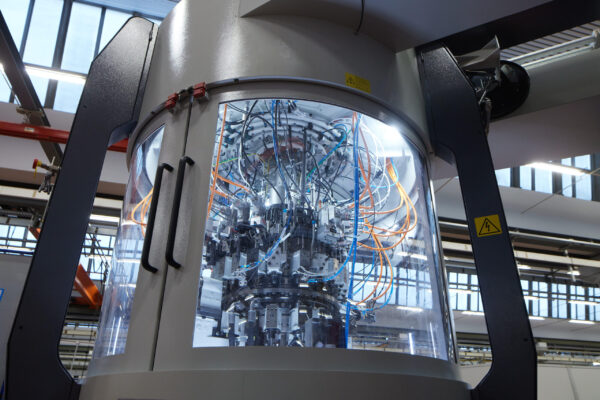Tough half-year’s trading
Braemar has been adversely affected by very challenging trading conditions during the six months to August 2016. Group revenue came back by 12% to £70.2m, with adjusted PBT falling by more than 50% from £6.96m to £3.01m, reflecting the cautious pre-close trading statement issued in late August. There were reduced returns from all three divisions; Technical was severely affected by the reaction of large parts of its customer base to the weak oil price and slipped into losses; Shipbroking saw an inevitable profits reduction as the tanker market predictably rebounded from the heady levels of business seen last year; in Logistics a sound performance from port services was just overshadowed by disappointing freight forwarding returns.
Exceptional debits were down from £1.8m to £1.1m, again mostly related to 2014 merger with ACM Shipping. In addition, the group absorbed £1.8m of one-off restructuring costs (£1.5m Technical division; £0.3m Shipbroking division), which we have added back in the table below and to calculate our adjusted earnings estimates for the current year. After allowing for 24.5% tax on this adjustment, interim EPS emerge at 8.5p, almost covering the unchanged interim dividend of 9.0p.
Exhibit 2: Half-year results
£000s |
H115 |
H215 |
H116 |
H216 |
H117 |
Revenue |
|
|
|
|
|
Shipbroking |
20,980 |
32,609 |
33,336 |
37,363 |
30,826 |
Technical |
22,938 |
26,955 |
28,622 |
25,661 |
21,726 |
Logistics |
20,555 |
21,811 |
17,627 |
16,516 |
17,665 |
|
64,473 |
81,375 |
79,585 |
79,540 |
70,217 |
Operating profit |
|
|
|
|
|
Shipbroking |
1,355 |
4,233 |
4,597 |
5,056 |
4,322 |
Technical |
2,342 |
3,688 |
3,149 |
2,052 |
(512) |
Logistics |
1,046 |
1,229 |
981 |
596 |
864 |
|
4,743 |
9,150 |
8,727 |
7,704 |
4,674 |
Unallocated costs |
(1,137) |
(1,484) |
(1,632) |
(1,041) |
(1,519) |
|
3,606 |
7,666 |
7,095 |
6,663 |
3,155 |
Interest |
(50) |
(243) |
(135) |
(252) |
(141) |
Joint ventures |
(30) |
8 |
0 |
0 |
0 |
Pre-tax profit |
3,526 |
7,431 |
6,961 |
6,410 |
(3,014) |
Gross margin |
73.1% |
75.0% |
78.1% |
80.0% |
78.0% |
Operating margin |
6.4% |
9.4% |
8.9% |
8.4% |
4.5% |
Source: Braemar Shipping RNS. Note: Before amortisation of intangible assets and exceptional items; H117 adjusted for £1.8m restructuring costs (£0.3m Shipbroking; £1.5m Technical; consolidates ACM Shipping from July 2014.
Shipbroking (44% of H1 revenue)
Shipbroking revenues slipped back by 8% to £30.8m over the half year, entirely the result of lower shipping rates; the group actually increased the number of shipping movements managed. The reduction in adjusted operating profits was kept to just 6%, from £4.6m to £4.3m, because of the previous year’s restructuring, which sharply reduced the cost base. However, as indicated above, there were one-off restructuring costs of £0.3m in the dry cargo section, leaving declared operating profits down to £4.0m.
In the key deep-sea tanker market (est 60% of divisional revenues) there was a softening of spot rates in Q2 reflecting a combination new tonnage coming on to the market and an easing of port congestion, which adjusted the supply/demand equation. We understand that rates have recovered in recent weeks, but it is too early to assess whether the improvement is sustainable. However, as we indicated a year ago, the increased uncertainty in markets has led to a shift in the market, with key operators tending to require higher levels of support from the brokers with recognised specialist research capabilities. As a leading player in this segment of the market, Braemar believes it has at least sustained its high market share.
Similarly, the offshore market remains subdued, with exploration activity having fallen away as the oil price collapsed and, to date, shows little sign of recovery. Exploration budgets have been cut back, with spot rates weakening with the drop in demand. Braemar’s performance may have been cushioned, to a certain extent, by the continued demand for supply vessels and from a number of time charters, but another disappointing result appears inevitable in H2.
Conditions in the dry bulk cargo market have also been challenging. Despite the accelerated scrapping of older vessels, shipping capacity has stubbornly remained too high at a time when demand, especially from China, continues to fall below earlier expectations. Braemar has undertaken a restructuring in this sector, especially in Australia where the group may have been overstaffed following the ACM merger. By contrast, it has increased its exposure to the capsize sector, taking on a small, but experienced team. With spot rates tending higher in recent weeks and the reduced cost base, we are hoping for a much improved H2 in this segment of the market.
The sale and purchase operation has seen sustained income, with increased second hand and demolition activity transacted at lower average prices. We look for similar trading during the second half of the year. We still remain confident about the medium to long term – the merging of the former ACM projects desk with the Braemar sale & purchase team has led to a number of new business prospects, although many of these are subject to delay in the current shipping climate.
Technical (31% of H1 revenue)
The drop in the oil price and its impact on exploration activity had a serious adverse effect across the Technical division. The offshore and engineering businesses both saw major trading reverses. Divisional revenue fell by 24% from £28.6m to £21.7m, while last year’s operating profit of £3.1m fell to a loss of £0.5m, which was increased to £2.0m as a result of an extensive restructuring programme. Further restructuring can be expected during H2, as new managers across the division assess the impact of the more challenging trading environment.
Braemar Offshore, supplying services to the South-East Asia offshore market, suffered a number of contract delays, accentuating the impact of reduced activity levels. Considerable cost was taken out of the higher cost operations in Singapore and Australia, the benefits of which should be seen in H2, despite the continuing tough trading climate.
There was a similar story at Braemar Engineering. It had been expected that new contracts in the US and Europe would emerge to fill gaps in the order book following completion of a major Nigerian contract, overseeing the design, construction and commissioning of three LNG carriers. We understand from management that the business has a very high level of enquiries, but several orders have been deferred pending greater clarification in the market place. The company has restructured its UK team and relocated key personnel out in the field back to the main offices in London and Houston. Several potential customers had originally indicated that the long-term potential of LNG markets was encouraging them to proceed with new vessels, but fears about the duration of the present malaise has prompted a more cautious policy over the past few months. Cost cutting should lead to an improved H2 performance, but a return to last year’s performance levels will take time.
The two insurance-based businesses, Braemar SA and Braemar Adjusting, both reported more challenging conditions. SA has seen a sustained level of in activity, especially in South-East Asia, but the average incident value was lower; diversification plans continued and the signs are still promising but will take time to deliver increased profits. Adjusting did well in the Middle East and Singapore, while the tougher conditions in the UK, US and Canada are being countered in H2 with a number of new instructions.
Braemar Howells, the environmental problem-solving business, delivered modest progress. No new major incidents arose, but the underlying business continues to develop steadily.
Logistics (25% of H1 revenue)
Logistics experienced a mixed half year, with the ship agency business delivering useful progress, although it was insufficient to balance the impact of more challenging trading conditions for the freight forwarding operation. Divisional revenue was virtually unchanged, rising by just 0.2% to £17.7m, but there was a 12% reduction in operating profit at £0.9m.
The main factor behind the varied performances was probably timing. Action to broaden the base and quality of the ship agency business began some three years ago and is already delivering useful returns despite the challenging trading conditions. The change of leadership in freight forwarding was much more recent – investment in strengthening the teams in Houston, Atlanta and Singapore are only just starting to deliver new business, with management targeting an improved result during the second half.

















